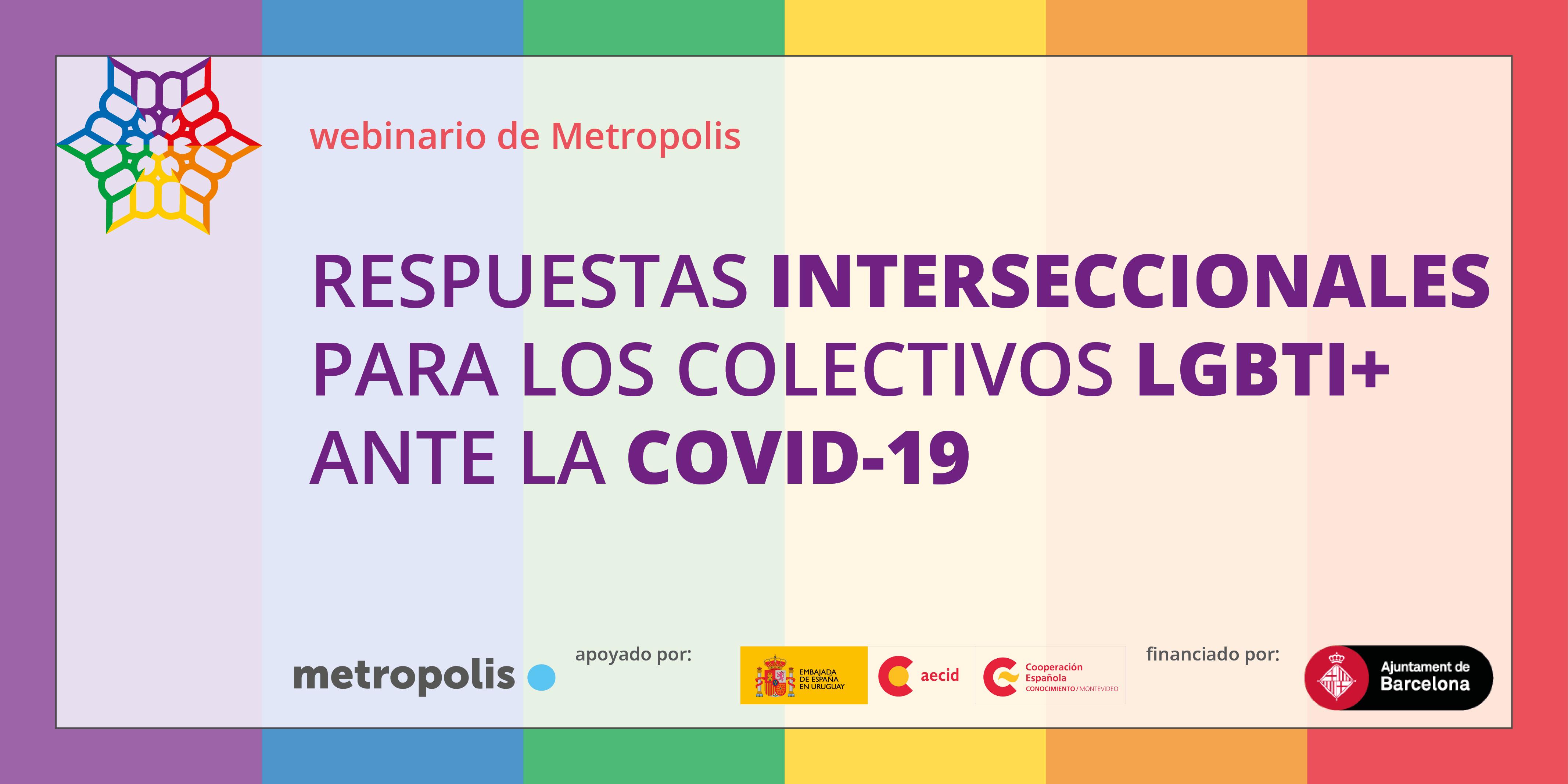
Intersectional responses for the LGBTI+ community facing COVID-19
This webinar focused on analysing the concept of intersectionality. Moreover, participants could learn from concrete experiences incorporating the intersectional perspective in the response to the social crisis generated by the COVID-19. In particular, Barcelona, Rosario, Buenos Aires, Mexico City, Bogotá, Medellin and Montevideo.
The idea that the axes of inequality operate in parallel has many limitations, both for understanding social reality with complexity and for intervening from public policy. The intersectional perspective gives us tools to think with more complexity about how the different axes of inequality are crossed and what specific vulnerabilities, needs or discriminations result from those crossings.
In this session, apart from analyzing the concept of intersectionality, participants could learn from concrete experiences incorporating the intersectional perspective in the response to the social crisis generated by the COVID-19. In particular, Barcelona, Rosario, Buenos Aires, Mexico City, Bogotá, Medellin and Montevideo.
If you want to know more about this session, you can read the news.

- Gerard Coll Planas, Director of the Centre d'Estudis Interdisciplinaris de Gènere, Universitat de Vic and Universitat Central de Catalunya
- Meritxell Saez, Department of Feminisms and LGTBI, Barcelona City Council
- Martín Clapié, Director of the Sexual Diversity Office, Municipality of Rosario
- Sabrina Crespo, LGBTI+ Representative, Sexual Diversity Office, Municipality of Rosario
- Pamela Malewicz, Undersecretary of Human Rights and Cultural Pluralism, Government of the Autonomous City of Buenos Aires
- Geraldina González de la Vega, President of COPRED, Mexico City
- David Alonzo, Director of the Sexual Diversity Office, Bogotá City Hall
- Luz Ángela Álvarez, Secretariat of Social Inclusion, Family and Human Rights, Medellín City Hall
- Andrés Scagliola, Executive Coordinator of the Secretariat for Diversity, Montevideo City Hall





